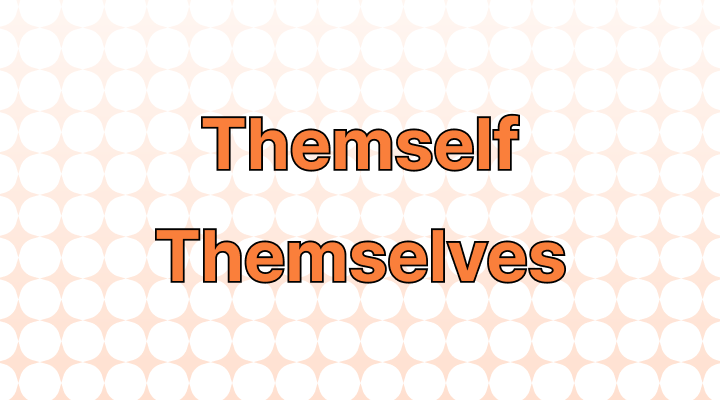"Themself" is used with singular subjects and is less common, while "themselves" is used with plural subjects and is the standard form in English. Both are reflexive pronouns used to indicate that the action or state applies to a specific person or group.
What does themself mean?
"Themself" is a reflexive pronoun used to refer to a singular person when they are the object of a verb or preposition. It is used to emphasize that the action or state is specific to that individual. "Themself" is less commonly used and may be considered non-standard in some English dialects. These word is also not frequently used in everyday discourse, but it is not wrong to use this word.
What does themselves mean?
"Themselves" is also a reflexive pronoun, but it is used to refer to a plural group of people or things when they are the object of a verb or preposition. It is the standard and widely accepted form for indicating that the action or state applies to a group.
How are the two words, themself and themselves, used?
"Themself":
- Singular Reflexive: "They should take care of themself."
- Singular Emphasis: "She can do it by themself if they want to."
"Themselves":
- Plural Reflexive: "They took care of themselves."
- Plural Emphasis: "They can do it by themselves."
How are themself and themselves different?
Number Agreement
The primary difference between "themself" and "themselves" is the number agreement. "Themself" is used with singular subjects, while "themselves" is used with plural subjects.
- Singular: "They took care of themself."
- Plural: "They took care of themselves."
Standard Usage
"Themselves" is the standard and widely accepted form for reflexive pronouns when referring to plural subjects. It is commonly used in both written and spoken English. In contrast, "themself" is less common and may be considered non-standard or dialect-specific. Some people may use "themself" in informal speech or writing, but it's important to be aware that it may not be universally accepted.
Emphasis
Both "themself" and "themselves" can be used for emphasis, but "themself" is more commonly associated with emphasizing the individual within a group. For example, "They can do it by themselves" emphasizes the group's self-sufficiency, while "They can do it by themself" emphasizes the individual's self-reliance within the group.
Want to sound like a native speaker?
Engram’s AI-powered grammar checker makes your English sound like a native speaker’s, suggesting natural English expressions on top of fixing grammar, spelling, punctuation, word order, and vocabulary.

Reference














